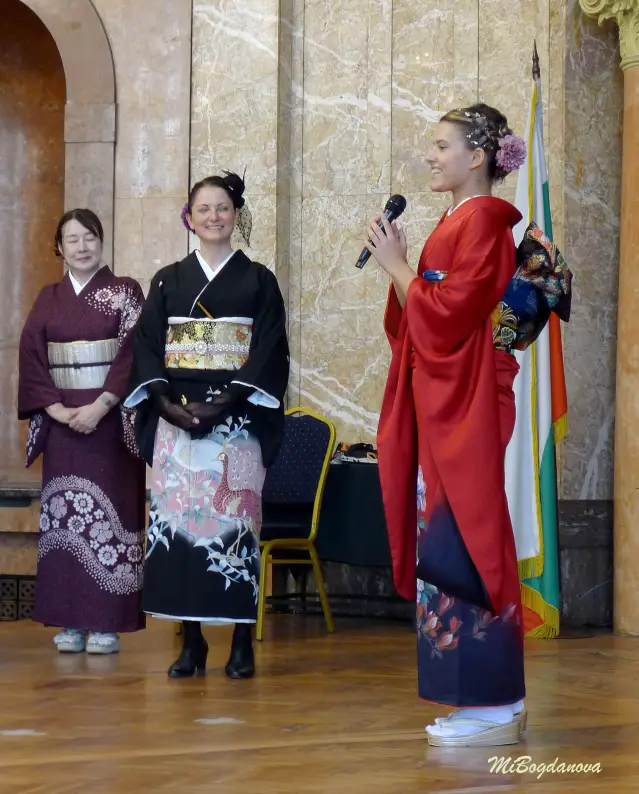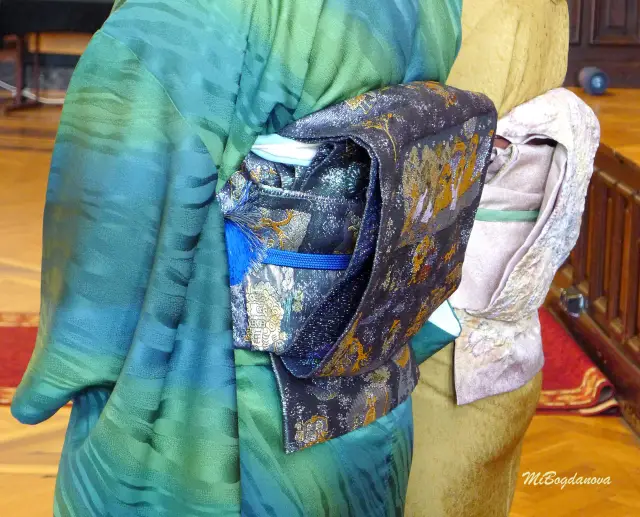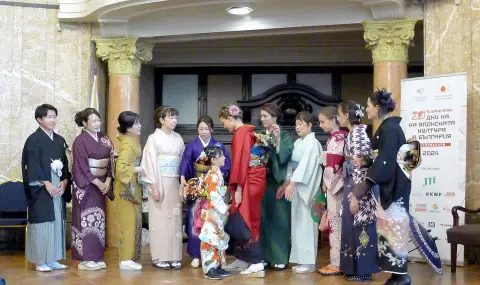The kimono donning ceremony lasts about 15 minutes
Twenty-three events in 7 major Bulgarian cities will cover this year's, 35th edition of “Days of Japanese Culture” in Bulgaria. The first event was on September 1 in the hall of the Sofia University “St. Kliment Ohridski“. Together with the Japanese Embassy and the Faculty of Japanese Studies. Minori Sugimoto, a 1st level expert in kimono love, specially arrived in Bulgaria together with 5 more of her assistants to immerse the Bulgarian public in the aesthetics and rich symbolism of the Japanese traditional garment.
Kimoto is traditional Japanese clothing. Over 90% of Japanese people have worn a kimono, but only 10% of them can put it on themselves. Putting on a kimono is a ritual involving at least three people, not counting the person being dressed. In Japan, you have to participate in dressing someone else's kimono for at least 2-3 years before enrolling in a special kimono-wearing course, which ends with a practical and theoretical exam.
Nowadays, traditional Japanese clothing is new mostly for occasions, such as coming of age, which in Japan occurs at the age of 20, wedding, tea ceremony. In their everyday life, the Japanese dress according to the so-called “western model“.
The kimono is mainly made of silk and cotton. Characterized by beautiful designs, the silk is often hand-painted. The fabric is soft, falls elegantly on the body.
The kimono originated as a garment as early as the 5th century. It is in the shape of the letter T and is intended to hide the imperfections of a woman. For the West, we associate it with geishas, for whom it is a traditional garment. Kimonos in bright colors are mostly worn by women, while those for men are in darker colors. It is worn in all seasons of the year, but mostly in winter.




